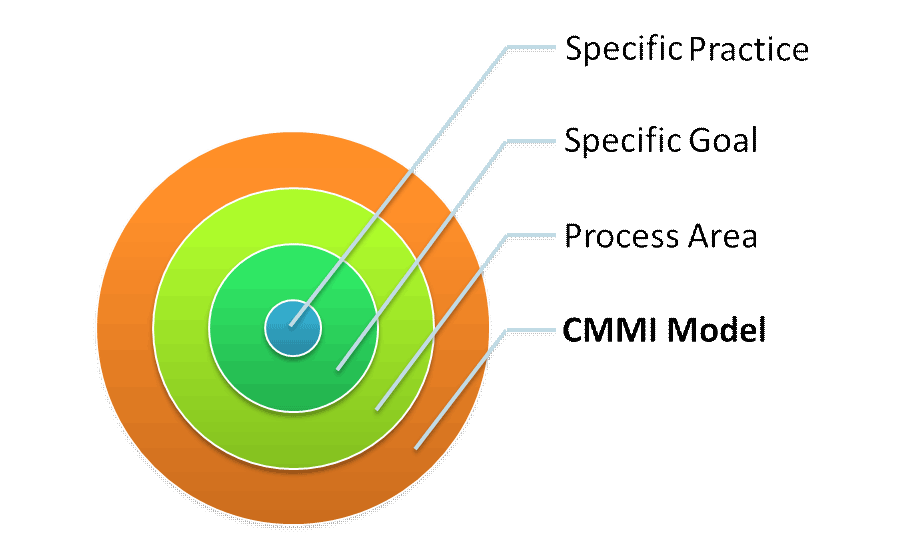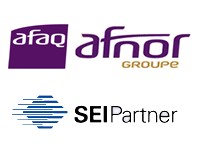CMMI for Acquisition (CMMI-ACQ in short) is meant for organizations that are into acquisition business. CMMI for Acquisition supports organizations to avoid or reduce difficulties in the acquisition process through practices and terms that exceed the benefits of individual departments or groups.
All CMMI-ACQ model practices concentrate on the activities of the acquirer. Those activities include provider finding, developing and awarding provider contracts and handling the acquisition of capabilities. It includes the acquisition of both products and services.
CMMI-ACQ is a reference model that contains the acquisition of desired skills. Skills are attained in many industries, including aerospace, banking, computer hardware, software, defense, automobile manufacturing, and telecommunications. All of these manufacturing companies can use CMMI-ACQ.
The main issue many organizations faced is the need of an integrated approach. Business success is directly dependent on effective management of organizational resources.
To apply this model for your organization, use expert’s opinion and common sense. Particularly the process areas explained in this model represent behaviors that measured best practices for most acquirers. All process areas and practices should be explained using detailed knowledge of CMMI-ACQ.
Structure of CMMI Components

CMMI Process Areas
The 22 process areas are presented in alphabetical order by acronym:
- Agreement Management (AM)
- Acquisition Requirements Development (ARD)
- Acquisition Technical Management (ATM)
- Acquisition Validation (AVAL)
- Acquisition Verification (AVER)
- Causal Analysis and Resolution (CAR)
- Configuration Management (CM)
- Decision Analysis and Resolution (DAR)
- Integrated Project Management (IPM)
- Measurement and Analysis (MA)
- Organizational Process Definition (OPD)
- Organizational Process Focus (OPF)
- Organizational Performance Management (OPM)
- Organizational Process Performance (OPP)
- Organizational Training (OT)
- Project Monitoring and Control (PMC)
- Project Planning (PP)
- Process and Product Quality Assurance (PPQA)
- Quantitative Project Management (QPM)
- Requirements Management (REQM)
- Risk Management (RSKM)
- Solicitation and Supplier Agreement Development (SSAD)
CMMI Process Areas in Detail
Agreement Management (AM)
Agreement Management (AM) process area helps in establishing and managing agreements between the supplier and the acquirer and in ensuring that they perform according to the terms and conditions of the agreement.
Acquisition Requirements Development (ARD)
Acquisition Requirements Development (ARD) process area helps in collecting, developing and analyzing requirements of the customers and based on contracts.
Acquisition Technical Management (ATM)
Acquisition Technical Management (ATM) process area helps in the evaluation of the technical solution provided by supplier and in managing the interface requirements of the solution.
Acquisition Validation (AVAL)
Acquisition Validation (AVAL) process area helps in validating the acquired product or services by demonstrating their usage in the intended environment.
Acquisition Verification (AVER)
Acquisition Verification (AVER) process area helps in ensuring that the work products are developed as per their specified requirements.
Causal Analysis and Resolution (CAR)
Causal Analysis and Resolution (CAR) process area helps in the identification of causes of the issues and to take actions to avoid those causes and thus improving performance over a period of time.
Configuration Management (CM)
Configuration Management (CM) process area helps in the identification of configuration items, managing their integrity, configuration control and configuration status accounting and conducting configuration audits.
Decision Analysis and Resolution (DAR)
Decision Analysis and Resolution (DAR) process area helps in the selection of best alternative from different alternatives available for a solution using the formal evaluation process.
Integrated Project Management (IPM)
Integrated Project Management (IPM) process area helps managing the project using the integrated plan developed based on the tailored process developed from the organizational set of process. It also helps in managing relevant stakeholders involvement in the project.
Measurement and Analysis (MA)
Measurement and Analysis (MA) process area helps in deciding the measurement goals, collecting and analyzing them in order to support the management decisions.
Organizational Process Definition (OPD)
Organizational Process Definition (OPD) process area helps in the establishment and development of processes, templates, checklists, guidelines, standards for work environment, rules and regulations for teams.
Organizational Process Focus (OPF)
Organizational Process Focus (OPF) process area helps in the process improvement through planning, implementing and deploying process improvement ideas, after evaluating them and analyzing strengths and weaknesses of the current processes and process assets.
Organizational Performance Management (OPM)
Organizational Performance Management (OPM) process area helps in managing the organizational performance by proactively managing it to meet the business goals.
Organizational Process Performance (OPP)
Organizational Process Performance (OPP) process area helps in establishing the quantitative nature of the selected processes through Organizational Capability Baselines and in improving this quantitative nature of the processes over a period of time.
Organizational Training (OT)
Organizational Training (OT) process area helps in the development of the skillset of personnel so that they can execute their responsibilities effectively and efficiently.
Project Monitoring and Control (PMC)
Project Monitoring and Control (PMC) process area helps in the management of the project progress and taking corrective actions in case of deviations in the performance parameters.
Project Planning (PP)
Project Planning (PP) process area helps in the planning for the project i.e. creating plans for the project defining different activities.
Process and Product Quality Assurance (PPQA)
Process and Product Quality Assurance (PPQA) process area helps in providing the insight on the process implementation in the project activities and the produced artifacts and work products.
Quantitative Project Management (QPM)
Quantitative Project Management (QPM) process area helps in managing the project performance quantitatively.
Requirements Management (REQM)
Requirements Management (REQM) process area helps in managing the requirements, handling changes in the requirements, alignment of project work and requirements.
Risk Management (RSKM)
Risk Management (RSKM) process area helps in the management of risk by identifying them early, preparing risk mitigation plan and taking actions in case risk occur in order to minimize the impact of risk.
Solicitation and Supplier Agreement Development (SSAD)
Solicitation and Supplier Agreement Development (SSAD) process area helps in the management of solicitation and supplier agreement activities, selecting best supplier(s) for delivering product and services.
DQS India CMMI-ACQ Services
See details on CMMI for Acquisition (CMMI-ACQ) Appraisal and Assessment Services
CMMI for Acquisition (CMMI-ACQ) Consulting
To increase the competitiveness of the client by helping them to identify and implement service management work processes that are compliant with the CMMI for Acquisition (CMMI-ACQ) model the following services are provided by DQS Certification India:
- Conduct CMMI for Acquisition (CMMI-ACQ) process areas training
- Gap Analysis towards CMMI for Acquisition (CMMI-ACQ) target maturity level
- Consultation visits, based on the action plan created upon the gap analysis findings
- Conduct pre-appraisal to check the company readiness for formal appraisal
- SCAMPI-A formal appraisal towards target maturity level
See details on CMMI for Acquisition (CMMI-ACQ) Consulting
CMMI Consultants from DQSITC are not allowed to carry out CMMI Assessment or ISO 9001 or similar assessments which are controlled by ISO 17021 and SEI Conflict of Interest Policy. On the other hand, DQS Certification India’s CMMI Assessors and Management System Auditors (like for ISO 9001, 14001) are not allowed to carry out CMMI Consulting. Conflict of Interest Management and Impartiality Policy.


